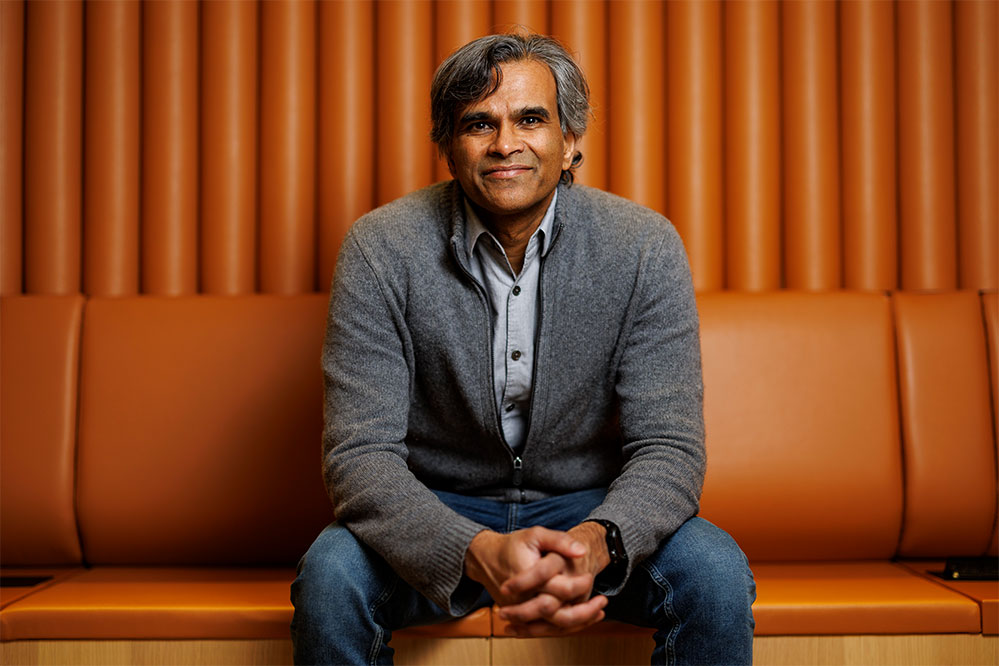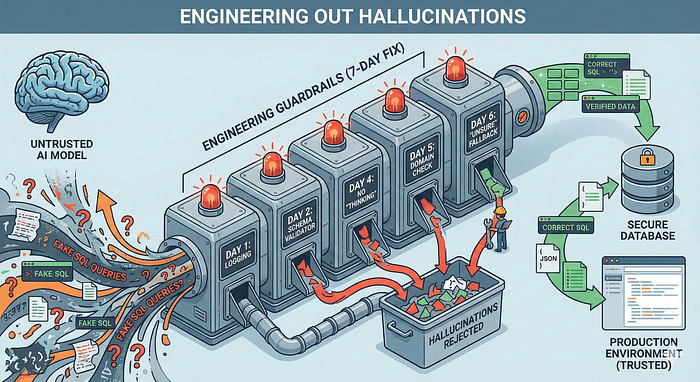Introduction to Sendhil Mullainathan
Behavioral economist Sendhil Mullainathan has never forgotten the pleasure he felt the first time he tasted a delicious crisp, yet gooey Levain cookie. He compares the experience to when he encounters new ideas. “That hedonic pleasure is pretty much the same pleasure I get hearing a new idea, discovering a new way of looking at a situation, or thinking about something, getting stuck and then having a breakthrough. You get this kind of core basic reward,” says Mullainathan, the Peter de Florez Professor with dual appointments in the MIT departments of Economics and Electrical Engineering and Computer Science, and a principal investigator at the MIT Laboratory for Information and Decision Systems (LIDS).
Early Life and Education
Mullainathan’s love of new ideas, and by extension of going beyond the usual interpretation of a situation or problem by looking at it from many different angles, seems to have started very early. As a child in school, he says, the multiple-choice answers on tests all seemed to offer possibilities for being correct. “They would say, ‘Here are three things. Which of these choices is the fourth?’ Well, I was like, ‘I don’t know.’ There are good explanations for all of them,” Mullainathan says. “While there’s a simple explanation that most people would pick, natively, I just saw things quite differently.”
Thinking Out of Phase
Mullainathan says the way his mind works, and has always worked, is “out of phase” — that is, not in sync with how most people would readily pick the one correct answer on a test. He compares the way he thinks to “one of those videos where an army’s marching and one guy’s not in step, and everyone is thinking, what’s wrong with this guy?” Luckily, Mullainathan says, “being out of phase is kind of helpful in research.”
Research and Career
Mullainathan has received a MacArthur “Genius Grant,” has been designated a “Young Global Leader” by the World Economic Forum, was named a “Top 100 thinker” by Foreign Policy magazine, was included in the “Smart List: 50 people who will change the world” by Wired magazine, and won the Infosys Prize, the largest monetary award in India recognizing excellence in science and research. Another key aspect of who Mullainathan is as a researcher — his focus on financial scarcity — also dates back to his childhood. When he was about 10, just a few years after his family moved to the Los Angeles area from India, his father lost his job as an aerospace engineer because of a change in security clearance laws regarding immigrants.
Behavioral Economics
His family got by running a video store and then other small businesses, and Mullainathan made it to Cornell University, where he studied computer science, economics, and mathematics. Although he was doing a lot of math, he found himself drawn not to standard economics, but to the behavioral economics of an early pioneer in the field, Richard Thaler, who later won the Nobel Memorial Prize in Economic Sciences for his work. Behavioral economics brings the psychological, and often irrational, aspects of human behavior into the study of economic decision-making. “It’s the non-math part of this field that’s fascinating,” says Mullainathan. “What makes it intriguing is that the math in economics isn’t working. The math is elegant, the theorems. But it’s not working because people are weird and complicated and interesting.”
Impact and Future Directions
In 2013, he published a paper in Science titled “Poverty Impedes Cognitive Function.” The research measured sugarcane farmers’ performance on intelligence tests in the days before their yearly harvest, when they were out of money, sometimes nearly to the point of starvation. In the controlled study, the same farmers took tests after their harvest was in and they had been paid for a successful crop — and they scored significantly higher. Mullainathan says he is gratified that the research had far-reaching impact, and that those who make policy often take its premise into account. Last year, Mullainathan came back to MIT (after having previously taught at MIT from 1998 to 2004) to focus on artificial intelligence and machine learning.
The Power of AI
While AI can automate tasks and systems, such automation of abilities humans already possess is “hard to get excited about,” he says. Computer science can be used to expand human abilities, a notion only limited by our creativity in asking questions. “We should be asking, what capacity do you want expanded? How could we build an algorithm to help you expand that capacity? Computer science as a discipline has always been so fantastic at taking hard problems and building solutions,” he says. “If you have a capacity that you’d like to expand, that seems like a very hard computing challenge. Let’s figure out how to take that on.”
Conclusion
Mullainathan sums the idea up as “average-you is better than you. Imagine an algorithm that made it easy to see what you would normally do. And that’s not what you’re doing in the moment. You may have a good reason to be doing something different, but asking that question is immensely helpful.” Going forward, Mullainathan will absolutely be trying to work toward such new ideas — because to him, they offer such a delicious reward.
FAQs
- Q: What is behavioral economics?
A: Behavioral economics brings the psychological, and often irrational, aspects of human behavior into the study of economic decision-making. - Q: What is the focus of Sendhil Mullainathan’s research?
A: Mullainathan’s research focuses on financial scarcity and its impact on cognitive function. - Q: What is the potential of AI in expanding human abilities?
A: AI can be used to expand human abilities by building algorithms that help individuals expand their capacities and make better decisions. - Q: What is the significance of Mullainathan’s research on poverty and cognitive function?
A: Mullainathan’s research has far-reaching impact and has created sensitivity at every level of the design process, recognizing that economic precarity can significantly affect cognitive function.











